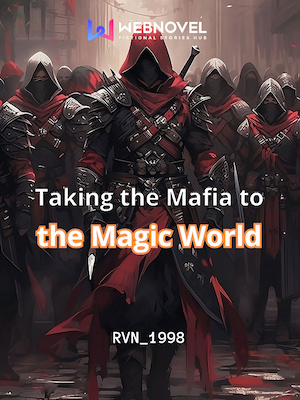Chapter 79:
Chapter 79
The German artillery on the eastern front always followed the doctrine of surprise and concentrated fire at a single point, using a large number of guns.
By pouring out the maximum fire at a decisive point, they could not only stop the Soviet offensive with a small force, but also minimize the Soviet observation and counter-battery fire, gaining an advantage in defense.
The barrage from a few batteries made it difficult to trace the shells, and even if the Soviet aircraft that somehow avoided the Luftwaffe tried to find the German batteries, the intermittent fire made it hard to observe for counter-battery fire.
Of course, that was the case in actual history.
“Wow! Are all these radios supplied to us?”
“Right? They say they give one radio to each tank and battery now?”
The rigid command system of the Soviet army was largely due to the lack of communication means.
They could not flexibly deliver orders according to the situation through radios, so they often had to send their soldiers to charge into the enemy’s barrage.
But now the Soviet army had distributed hundreds of thousands, millions of radios to each unit.
“Hahaha! The Americans are the best!”
“Hmm, shouldn’t we give them some medals or something?”
Through Lend-Lease, 500,000 radios and tens of thousands of kilometers of copper wire were delivered to Vladivostok.
This enhanced communication infrastructure sparked innovation in the Soviet army.
The Soviet soldiers who were well-fed and well-armed had high morale.
The will to defend their homeland was always backed by the food in their stomachs and the weapons in their hands.
The commissar worked hard to make many bureaucrats work overtime and night shifts, and was able to create a supply army.
“Defend your motherland! Ura! Ura! Ura!”
Thanks to these soldiers with high fighting spirit, there was no need to issue orders to prohibit retreat and defend the front line by threatening them with death.
This gave the unit commanders a little more autonomy.
They were not very competent, but they were no longer commanders who blindly followed orders like fools and feared for their lives.
The German army could no longer slaughter the Soviet army that silently charged into the fire like dumb animals.
Also, as the Soviet artillery firepower increased rapidly in scale, the German army could not provide enough firepower to the entire front line by using their artillery in a hit-and-run manner.
In front of the Soviet offensive, the lack of artillery fire to protect their allies meant that the infantry was exposed to powerful fire, which brought disaster to the front line.
The German artillery, which was already short of guns due to being taken away, suffered from chronic shortage of guns.
“We can’t maintain the front line like this! We need more artillery!”
“I know, I know... but...”
Continuous shelling wore out the gun barrels, and this resulted in a significant loss of guns.
The gun barrels cooled down quickly because of the cold weather, but there was no way to prevent them from wearing out inside.
Not only that, but as the fire support continued, the Soviet army that had located the German batteries used large-caliber heavy mortars that the Germans could not afford to operate, and destroyed them one by one from a long distance.
“Damn it, where are these coming from?”
“How far can those damn mortars reach? Where is our air force? Are they sleeping?”
“How do you expect them to fly in this shitty weather? Are you crazy?”
Normally, it should have been the air force that could project firepower from the farthest distance that stopped them, but they could not operate properly due to bad weather.
The Stukas that were barely squeezed out were torn apart by dense anti-aircraft fire that was unexpected, and this made it even harder to try.
The frontline officers screamed, and commander Manstein also screamed at the phone line heading to headquarters.
“Those bastards! Give me artillery! Give me tanks!”
How many radios did those Yankees make?
The Soviet tanks and artillery units had radios even at the lowest unit level, individual tanks and batteries.
The Germans were shocked when they found dozens of radios in a division that used to have only a few before Operation Barbarossa.
The operation of artillery and tanks became more sophisticated as a result. Ivan Konev, who was famous as a mastermind of the Soviet army, took full advantage of this opportunity.
“Charge! Charge! Soviet ura!”
“Ura! Ura! Uraaaaaa!”
“Hiiiiik!”
Of course, there could be opposite situations.
They cooperated with the German army but turned their guns when their brothers died at their hands.
In the meantime, the Soviet special forces wore white camouflage and sneaked in like ghosts, carrying out all kinds of sabotage.
“You rebels who defied the Greater German Reich deserve to die!”
“Oh, please spare me... Please...”
The villagers could not understand.
They had helped the German army, but the Germans suddenly appeared and attacked them.
Of course, they were actually Soviet soldiers in disguise.
The part about being ‘traitors’ was true for them, so the Spetsnaz did not hesitate to execute the national traitors.
They deliberately left a few alive to spread the rumor.
They carried out all kinds of covert operations.
They pretended to be German army extermination squads and massacred villages of Baltic descent, framing the German army.
Or they pretended to be Baltic militias and threatened and looted lightly armed German supply units.
Even if they were caught, they had their own excuses.
“Anyway, those bastards are either executed for treason or sent to Siberia. What’s wrong with that?”
“What can’t we do that the German army does?”
These disguised operations had more effect than they imagined. When they did not trust each other, the side with more numbers suffered more.
Since this was the German rear, Germany suffered much more damage.
In fact, even if the Baltic people looted the supply units, no one knew if they were really militias, pro-Soviet partisans, or Soviet special forces.
If they only took the supplies and returned the vehicles nicely, they thought they were militias.
If they blew up the vehicles and killed all the German supply unit members, they thought they were Soviets. That was all.
And as the front line became urgent and they became a thorn in their throat, they tightened their grip on the Northern Army Group’s neck.
“What? The railway was blown up?”
[Chi...chik...yes...chiik...]
The German front line was retreating more and more.
There were not enough trucks to carry heavy equipment, and the horses had frozen to death long ago and became a special meal for the soldiers.
At best, they only got one or two pieces per person.
In this situation, the soldiers had to push and pull heavy weapons such as towed guns and anti-tank guns to the temporary cargo loading station for retreat.
But all they met was bad news.
“Fuck... We dragged this thing all the way here and they tell us to just leave it?”
“If I knew this would happen, I would have broken it down...”
The Soviet special forces appeared out of nowhere and wreaked havoc on the German rear.
The vast northern Russia was full of forests, swamps, and hills that limited the watchmen’s sight.
The special forces wore white camouflage suits that matched the color of snow.
Sometimes they avoided the eyes of the rookies, sometimes they killed them, and attacked the railway.
The railway that they had painstakingly repaired during their rapid advance in summer was torn apart in places.
Sometimes bold ones hid nearby and waited for a train to pass by and detonated explosives.
They cut off the rails and derailed and overturned the train at the same time.
To catch one Soviet special force member who succeeded in destroying it, dozens of German soldiers who had to search through the snow ended up being sent back with frostbite.
“Answer me! Answer me!”
“Damn it, are we surrounded?”
The German soldiers had to shiver in the swirling snowstorm as they were killed by the Soviet soldiers who approached stealthily wearing white camouflage suits and carrying automatic rifles.
The Soviet soldiers infiltrated between isolated units. While the sight was limited by the snowstorm and the guarding soldiers were frozen stiff and could not respond properly, ski units armed with automatic weapons penetrated through the gaps in the front line.
In the end, the German army had to choose one of three options: either fight meaninglessly while being cut off from supplies and isolated, become prisoners and be dragged to Siberian gulags, or freeze to death.







